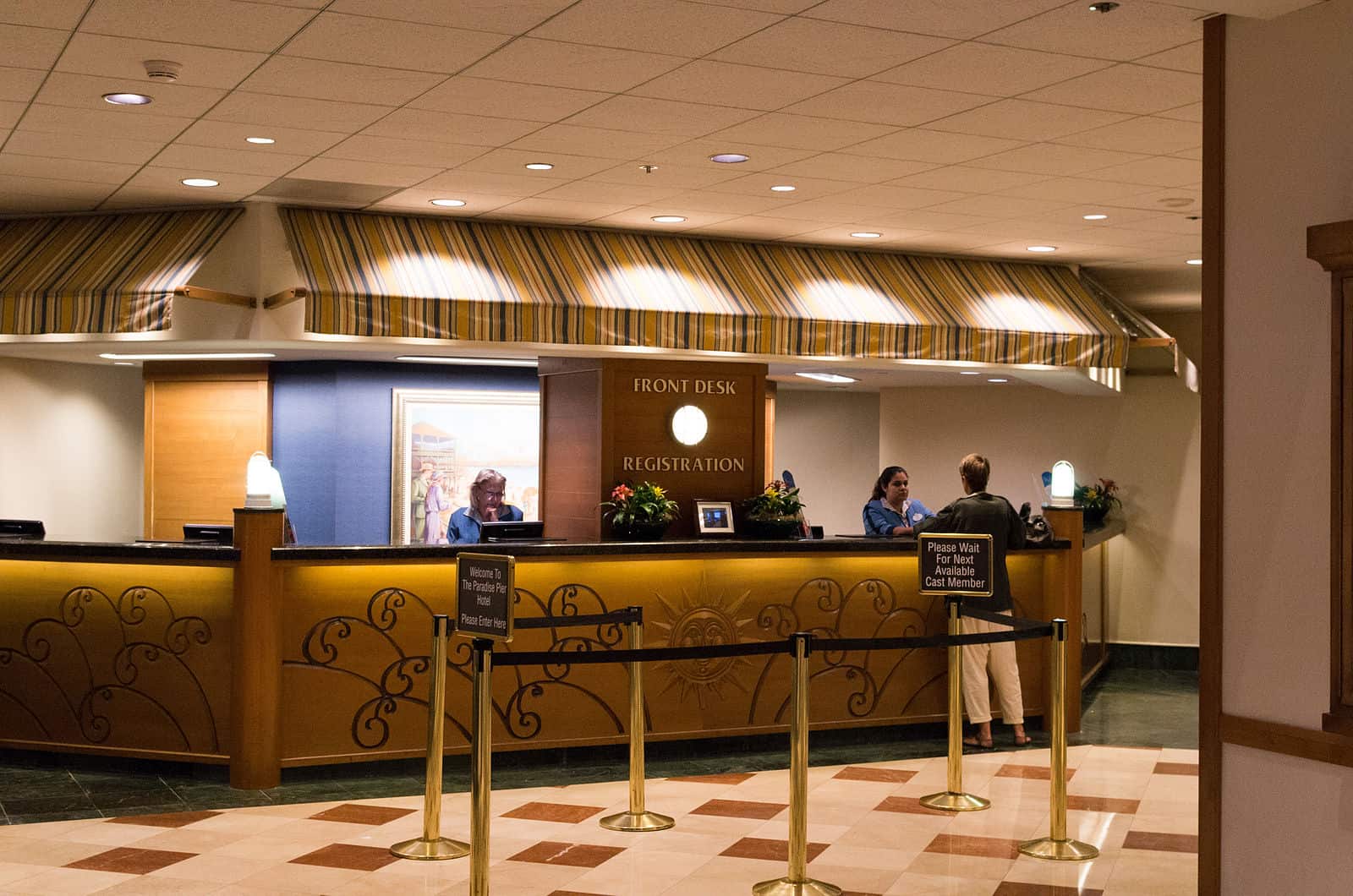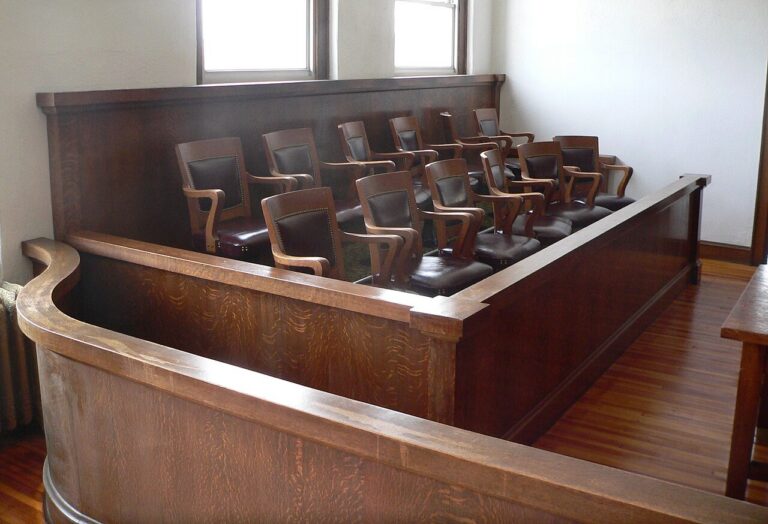
Andrew Strom is a union lawyer based in New York City. He is also an adjunct professor at Brooklyn Law School.
If Joe Biden wins the Presidential election and the Democrats win control of the Senate, then the Trump National Labor Relations Board will soon be just a bad memory. But, the D.C. Circuit’s recent decision in Davidson Hotel Co. v. NLRB is a reminder that changing the composition of the NLRB will not, by itself, meaningfully protect the right to organize.
The Davidson Hotel case is a good illustration of two obstacles that we need to overcome for workers to have a chance to organize in large numbers – the first is a system that allows case-by-case adjudication of whether a bargaining unit is “appropriate” each time a group of workers try to unionize, and the second, is a judiciary stacked with judges hostile to enforcement of the right to organize. The Davidson case began in early 2018 when workers at a small Chicago Marriott hotel tried to organize. In March 2018, UNITE-HERE Local 1, the Chicago hotel workers union, filed a petition with the NLRB to represent the housekeeping and food and beverage workers at the hotel. The employer refused to agree to the proposed unit and instead argued that the bargaining unit needed to include the front desk employees as well. After a hearing, the NLRB Regional Director issued a ruling siding with the employer. The Regional Director found that there were a lot of differences between the three groups of workers – they were separately supervised, they had different job duties and functions, they had different wage scales, different training, and there was no interchange between the groups. The Regional Director noted that in light of those differences, separate bargaining units for each of the three groups would be appropriate, but he found that any similarities between the housekeeping employees and the food and beverage employees were also shared with the front desk employees. Thus, he held that a unit combining food and beverage and housekeeping employees, but excluding front desk employees was inappropriate. Following the Regional Director’s decision, the Union filed two separate new petitions – one for the housekeeping employees and a second one for the food and beverage employees.
Even though the Regional Director had ruled in response to the first petition that “a unit limited only to housekeeping employees and/or a unit limited only to food and beverage employees would be appropriate,” in response to the new petitions, the Regional Director issued two new decisions (each 17 single-spaced pages) explaining why the separate units were appropriate. The Regional Director carefully went through each of the factors that the NLRB has long considered in deciding whether a particular unit is “appropriate.” The first step is to consider whether the workers in the proposed unit share a “community of interest,” and the next step is to consider whether the community of interest of the proposed unit is sufficiently distinct from the excluded workers to justify the exclusion. The relevant factors include whether the workers perform distinct work, whether they have distinct skills and training, whether they have separate supervision, whether there is interchange between the groups, whether there is functional integration between the groups (e.g. waiters serving food prepared by kitchen staff), and whether the groups have distinct terms and conditions of employment. Here, not only did the groups have separate supervision, different training, no interchange, and different duties, but there were also key differences in their terms and conditions of employment, notably they worked different shifts, and the front desk employees paid less for health insurance than other workers.
After the Regional Director issued his ruling, the election went forward and both the housekeeping and food and beverage groups voted overwhelmingly in favor of unionization. But, rather than bargain with the workers, the hotel filed a request for review with the NLRB. The employer found a couple of old decisions from the 1980s where the Board had agreed that front desk employees needed to be included in a bargaining unit with other hotel employees. While the Regional Director did not cite those cases, he did cite two later cases that distinguished them. Review of a Regional Director’s decision is discretionary, and the Board found that the employer raised no “substantial issues warranting review.” The employer still refused to bargain, and instead sought review in the D.C. Circuit.
On October 23, 2020 – two and a half years after the workers voted to unionize, a D.C. Circuit panel with two far-right judges (Trump appointee Neomi Rao and George H.W. Bush appointee A. Raymond Randolph) granted the employer’s petition. Inexplicably, the court found that the Regional Director’s decisions were arbitrary because he failed to explain in the decisions approving the separate housekeeping and food and beverage units why “the same factors that counseled against excluding the front desk in the first decision did not govern the second petition as well.” Of course, the reason he didn’t explain that in the later decisions is that there was no inconsistency because in the first decision he had expressly found that separate housekeeping and food and beverage units would be appropriate.
The D.C. Circuit panel further found that the Board was required to distinguish the two cases that the employer relied upon, implicitly holding that it was not enough for the Regional Director to cite to later cases that did, in fact, distinguish the earlier cases. Think about this – the court did not find that the Board applied the wrong standard in approving the bargaining units. There was no dispute about the many ways in which the front desk employees differed from the employees in the other groups. Instead, the Board was required to explain why it reached a different conclusion based on different facts at two different hotels in the 1980s. And, here is where we come to the real problem with how labor law currently works. Outside of acute care hospitals where the Board engaged in rulemaking to establish bargaining units, the Board engages in case-by-case adjudication over the scope of the bargaining unit each time a group of workers tries to organize. As you might imagine, there are dozens of different decisions addressing hotel bargaining units, and each case turns on the particular facts. And, the same is true in other industries. The more prior cases that need to be distinguished, the easier it is for an employer to make a non-frivolous argument that the Board has acted inconsistently. And, note that here, even if the D.C. Circuit had rejected the employer’s argument, the employer still would have succeeded in delaying bargaining for two and a half years!
This decision shows how, as bad as the Trump Board has been, reversing all the disastrous actions they have taken is not nearly enough to actually protect the right to organize. Whether through legislation or rulemaking, to give workers a meaningful right to organize and bargain collectively, we need to streamline the process for approving bargaining units, and stop letting employers appeal every bargaining unit determination to a panel of right-wing judges.










Daily News & Commentary
Start your day with our roundup of the latest labor developments. See all
February 22
A petition for certiorari in Bivens v. Zep, New York nurses end their historic six-week-strike, and Professor Block argues for just cause protections in New York City.
February 20
An analysis of the Board's decisions since regaining a quorum; 5th Circuit dissent criticizes Wright Line, Thryv.
February 19
Union membership increases slightly; Washington farmworker bill fails to make it out of committee; and unions in Argentina are on strike protesting President Milei’s labor reform bill.
February 18
A ruling against forced labor in CO prisons; business coalition lacks standing to challenge captive audience ban; labor unions to participate in rent strike in MN
February 17
San Francisco teachers’ strike ends; EEOC releases new guidance on telework; NFL must litigate discrimination and retaliation claims.
February 16
BLS releases jobs data; ILO hosts conference on child labor.